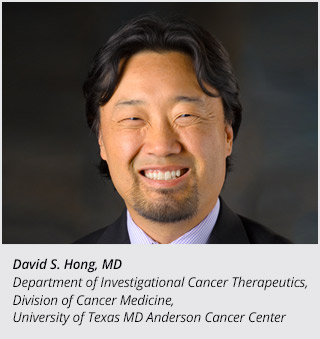Easing Access to Cancer Clinical Trials
Study showed that cancer patients were more likely to be approved for clinical trials after passage of the Affordable Care Act.

While the national debate over the Affordable Care Act (ACA) continues, a study published in Clinical Cancer Research, a journal of the American Association for Cancer Research, provides some evidence that the act has paved the way for more cancer patients to take part in clinical trials.
The study, conducted at The University of Texas MD Anderson Cancer Center in Houston, showed that approval rates for privately insured patients seeking to enroll in oncology clinical trials rose from about 85 percent prior to the ACA mandate to approximately 95 percent after the mandate.
Also, the privately insured patients experienced fewer delays in being cleared for participation after the passage of the ACA.
The ACA, officially known as the Patient Protection and Affordable Care Act and colloquially as Obamacare, was passed in 2010. Part of the act mandated that private insurers cover “standard of care” costs of clinical trial participation, effective Jan. 1, 2014.
Medicare, which is publicly funded, has covered the routine costs of clinical trial participation since 2000. Patients who were covered by private insurance often faced a patchwork of coverage options, with different insurers and different states determining whether participation in a clinical trial would be covered.
Lack of insurance coverage is one of numerous factors that limit cancer patients’ access to clinical trials, said the study’s senior author, David S. Hong, MD, deputy chair and associate professor in the Department of Investigational Cancer Therapeutics, Division of Cancer Medicine, at MD Anderson.

“Historically, less than 5 percent of patients with cancer in the United States have enrolled in clinical trials,” he said. “We are in a golden era of new drugs, but the only way to get them approved and available to patients is to get more people into clinical trials.”
Dr. Hong oversees phase I clinical trials at MD Anderson. He said he had perceived that, after the ACA mandate took effect, patients in his practice were experiencing fewer delays in being approved for clinical trials. He and his colleagues undertook the study to see whether that observation was true on a larger scale.
The researchers analyzed 2,404 referrals from the departmental database of the Clinical Center for Targeted Therapy at MD Anderson, comparing rates of insurance clearance and the time to clearance in three separate time periods: July 2012-June 2013; July 2013-December 2013; and January 2014-June 2015.
In addition to higher approval rates, privately insured patients were less likely to experience delays in getting cleared for participation after the ACA took effect, Dr. Hong said. He added that his study’s findings indicate that any replacement for the ACA should include provisions to ensure patient access to clinical trials.
Dr. Hong explained that timely approvals are crucial for patients who want to participate in clinical trials.
“In a phase I trial, many patients are in a state of advanced disease, so a single day can matter a great deal to them,” he said.
Hong said the study’s main limitation is that it was conducted solely at MD Anderson. While he believes that the overall trend of increased coverage would hold true at other institutions, he said further study at other cancer centers with different patient populations could be useful in analyzing the overall impact of the ACA.
